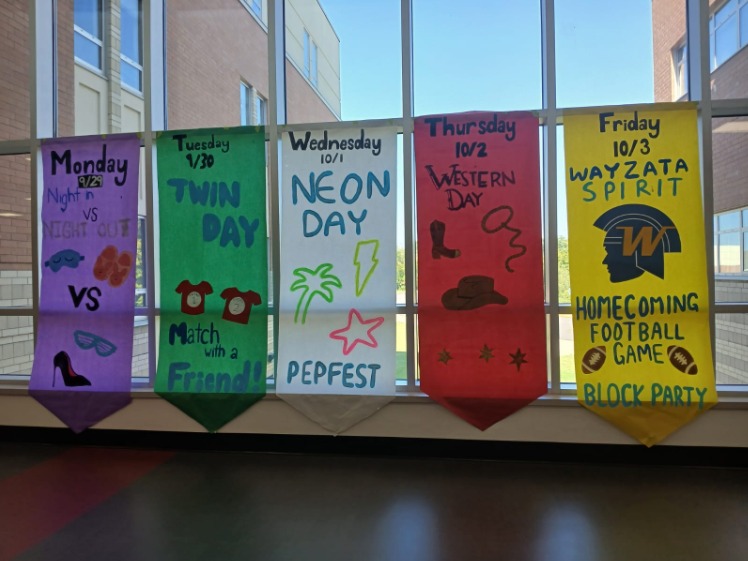
Every fall, Homecoming Week creeps in; you can feel the atmosphere change. Spirit Week is not just about dressing up—it’s a way for students and staff to feel included and connected with each other’s communities. Hallways are lined with posters, decorations, and people dressed in weird outfits. But what does school spirit really mean to the people who live it every day? For some, it might look like just another school tradition. But Spirit Week is much more than that—it’s one of the most powerful ways to build connection, pride, and energy in our school.
A New Year’s Pulse
The start of the school year always brings a rush of new energy, but for freshmen, that feeling is especially strong. Many are still figuring out where they belong in the community. One freshman explained, “My first Homecoming week is kind of awkward because it can be really confusing.” Though the first Homecoming might feel overwhelming, older students set the tone. As another freshman put it, “Upperclassmen’s energy influences the spirit—if older kids don’t participate, then the freshmen feel weird.”
More Than Just a Week
While Spirit Week is the highlight of the fall, its impact often lasts much longer than the dance. The themes, decorations, and even the laughter in the hallways become memories for everyone. Teachers still remember their own high school Homecomings. “I remember dressing up, I remember enjoying football games and trying to go every week—it just builds community,” shares Ms. Thomas, and Mr. Prondzinski adds “I was on the homecoming court, and I was shy and awkward, but it was a memory I remember.”
In a school as large as ours, it’s easy for students to feel like they don’t belong. Spirit Week—if made a tradition—gives everyone, no matter their grade or background, a chance to be included. As Ms. Thomas puts it, school spirit is about “fun joy with the silliness of it, which pulls kids together. It’s an easier way to connect because it’s easy to ask someone about their silly sweater or costume.” That lightheartedness makes it easier for students to start conversations and build friendships.
Community Tradition
Spirit Week also connects us to something deeper: tradition. Whether it’s attending the Homecoming game, dressing up with classmates, or cheering during assemblies, these shared moments create memories that last. Mr. Prondzinski, who has taught at both small and large schools, explained, “Schools are all about traditions—good and bad. If no one participates, some students feel isolated. But if we can make celebration the norm, it becomes something that unites people.” That’s what makes Spirit Week more than just a series of events—it’s a tradition that helps define who we are as a community.
Voices from Within
When we asked different groups of students about Spirit Week, their answers showed just how varied the experience can be. For returning students, the difference year to year is noticeable. “It used to feel more childish, but now it’s gotten more open to all,” one sophomore explained. “This year it’s stronger because of the themes and leadership changes. Don’t be scared to take part—you’ll regret it later.” New and exchange students also point out how unique Spirit Week is compared to other schools. “Not a lot of students participated at my old school,” one new student said. “Here, people participate more. Spirit events help you connect with others because you can bond over the activities.” These voices remind us that Spirit Week isn’t just about decorating or dressing up—it’s about inclusion.
Behind the scenes
Of course, Spirit Week doesn’t happen on its own. Much of the planning and preparation comes from Student Council, whose work often begins weeks before Homecoming. This year, council members decorated the halls, set up banners, and coordinated theme days to keep the week lively. Photos of students climbing ladders, painting signs, and stringing decorations across the building capture just how much effort goes into creating that festive atmosphere. One council member said, “People only see the final decorations, but it takes hours of planning. It’s worth it, though, when you see everyone’s reactions.” Another added, “We want every student to feel like
 they can take part in this, no matter what grade they’re in.”
they can take part in this, no matter what grade they’re in.”
Their behind-the-scenes dedication makes the visible celebrations possible, turning ideas into the moments that define Spirit Week.
Homecoming and Spirit Week might only last a few days, but the impact carries on. We only get four years of Homecoming, and when we’re older, we’ll tell our kids stories from just those few weeks. That’s why we have to make the most of it. As Mr. Prondzinski reminded us, spirit gives us something to be proud of: “We go to one of the best schools in the state, and sometimes we don’t celebrate that enough. We should be proud of ourselves.” That’s the real purpose of Spirit Week: celebrating not just the events, but each other and the community we’ve built together.
(Thank you to all the people who helped me interview them)
